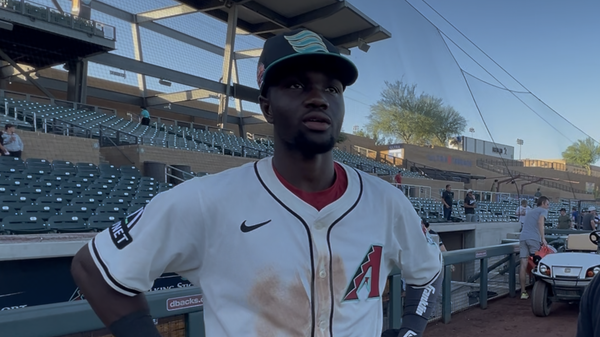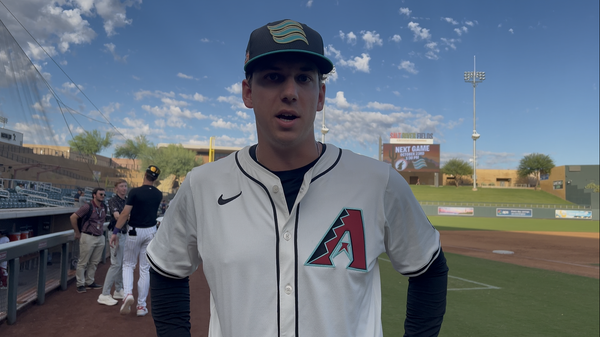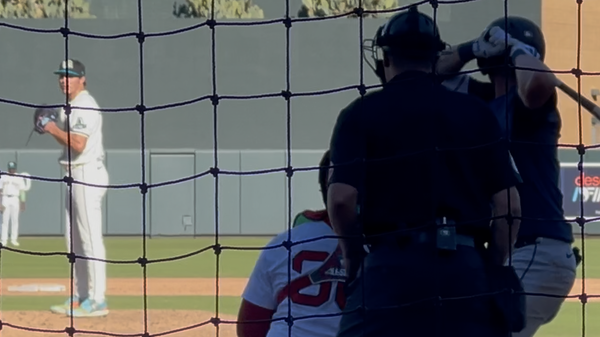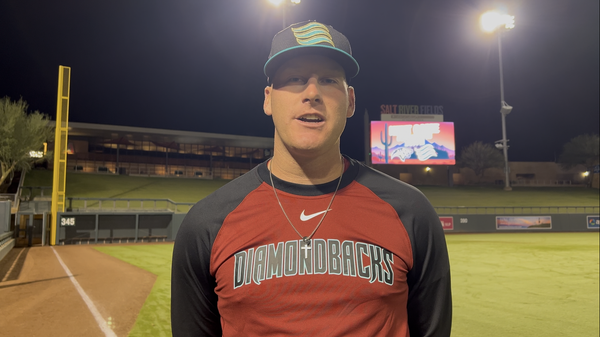In Defense of Analytics in Baseball
As a baseball writer, there is nothing that drives me up a wall than the discourse surrounding analytics in baseball. It's a mistake that's made at all levels of baseball understanding for outside observers, fans, and sports writers alike.
This topic reared its ugly head again when Ken Rosenthal brought up the topic on his Fair Territory podcast on Monday.
With all due respect to analytics, the Brewers are at least trying to play the game properly, says @Ken_Rosenthal.
— Foul Territory (@FoulTerritoryTV) August 18, 2025
"While organizations seem to obsess over enhancing pitching velocity and hitters' exit velocities, why can't they do the same on the fundamental side?" pic.twitter.com/3omrn3zwl8
The one difference that I will give credit to Rosenthal for is not automatically discounting analytics. I believe he was trying to give the Milwaukee Brewers credit for building a winner using players that other teams couldn't quite get the right value out of. It's a situation where Rosenthal should do a bit more research and prep on the topic before saying what he did.
At the same time, I understand the direction he's trying to go, even though he completely missed the mark. Fastball velocity and exit velocity are just one of many metrics used to discuss player performance in baseball, and they are not the end-all, be-all for everything. It's what Trevor May would describe as a "compass stat", just like batting average or ERA.
Analytics and Baseball
I believe the public discourse surrounding analytics is dismissive, mostly out of ignorance. If this 2025 season doesn't kill my spirit, I'll try to bridge the gap. The Ketel Marte situation
The definition of analytics, according to Oxford Dictionary, is "a careful and complete analysis of data using a model, usually performed by a computer; information resulting from this analysis."
All baseball statistics, by definition, are analytics. Whether you go for the simple stats shown on the back of a baseball card or you're religiously grinding through Baseball Savant, FanGraphs, or Baseball Reference for every possible metric, it's all about trying to figure out a player's value to their team.
If you've read my writing in the past, I try to be as thorough as possible in my analysis and coverage, and leave no stone unturned. It only takes me 30-45 minutes to blast through those three websites, especially if I have Statcast data, to write a quality scouting report. A weird flex, but I always felt that being able to synthesize multiple teams of information in a timely fashion was always my best skill set as a writer, even if it can't find the home it deserves and ultimately goes unused after this post.
In the modern era of baseball, EVERYTHING that happens on a baseball field is carefully monitored by all 30 teams. Things such as how often an outfielder hits the cutoff man, getting good jumps on balls put into play, exit velocity metrics, pitch shapes, and how fast a player is running on the field. Teams track "playing the game the right way" in more ways than we realize, as former major league pitcher Robert Stock said in his response to Rosenthal's misguided rant.
Hitting your cutoff man is an “analytic”. Doing the “little things right” are all “analytics”. If you’re a coach making little tallies every time a player takes a quality AB or makes a good baserunning play you’re being analytical. As you should. This is a tepid take. https://t.co/I183BPg3Jc
— Robert Stock (@RobertStock6) August 19, 2025
Those are metrics teams use to make decisions on who plays, who needs a day off, and who gets moved on or off the roster, and those decisions all happen daily.
I know this because it's discussed all the time. Whether it comes out of Torey Lovullo's mouth in pre- or postgame media sessions, or the broadcast booth provides the daily Dave McKay praise, it's not like the team is hiding it. It's just a matter of paying attention.
There's also an inside joke between Jack Sommers, me, Alex Weiner, and Jesse Friedman that you only need to use the expected stats to predict the Diamondbacks' decisions ahead of time and rationalize the why. It's something I've known since I started covering the team on-site in September 2022 for the On SI network.
You don't need me to point out this stuff like it's on a map if you're willing to listen. That was never my goal in the first place as a writer. It was to give readers the tools to do their homework, and maybe that's where I or someone else needs to do a better job moving forward.
But anyway, this is where my impassioned defense comes to an end.
P.S. I'm not even sure if I'll continue publishing baseball content after this, as the Ketel Marte situation has been emotionally draining. I've found myself in a peculiar situation where I can ironically empathize with a three-time All-Star starter and an MVP finalist on a $110+ million contract and his struggles of being misunderstood and unfairly scrutinized, and I don't like that. Marte is much better at his job than I am at the job I want, and he made the most of his opportunities, unlike me. That's the last I'll say of the situation; most likely, it will be the last time I publish in a while.




